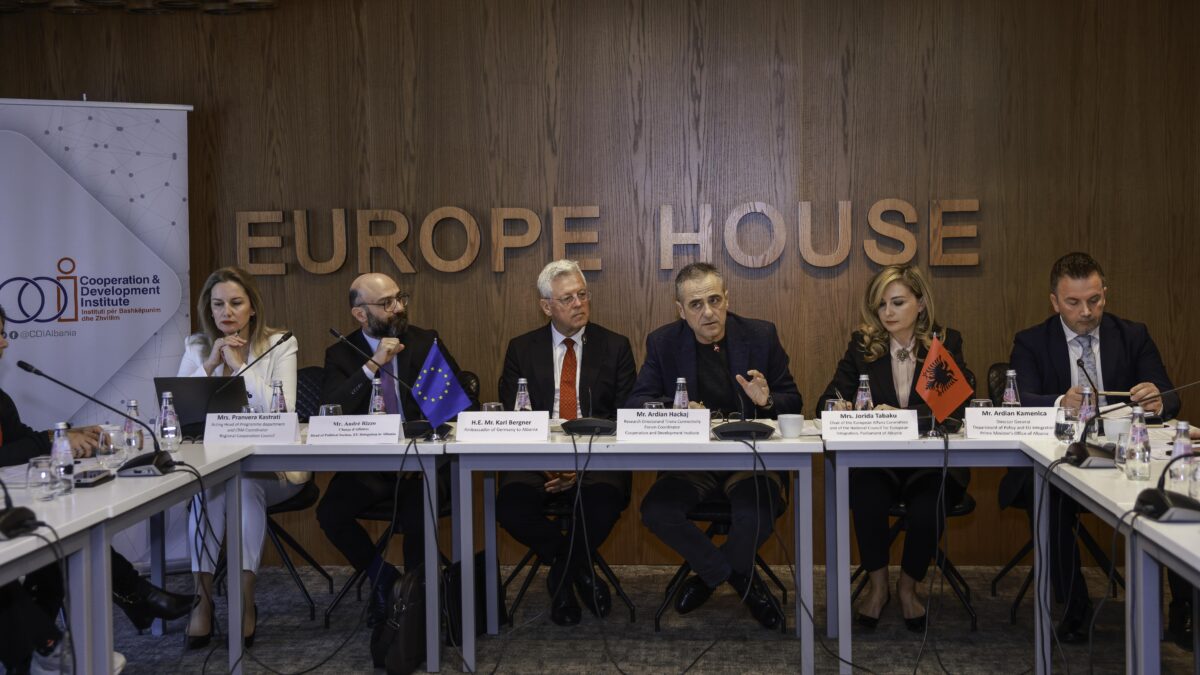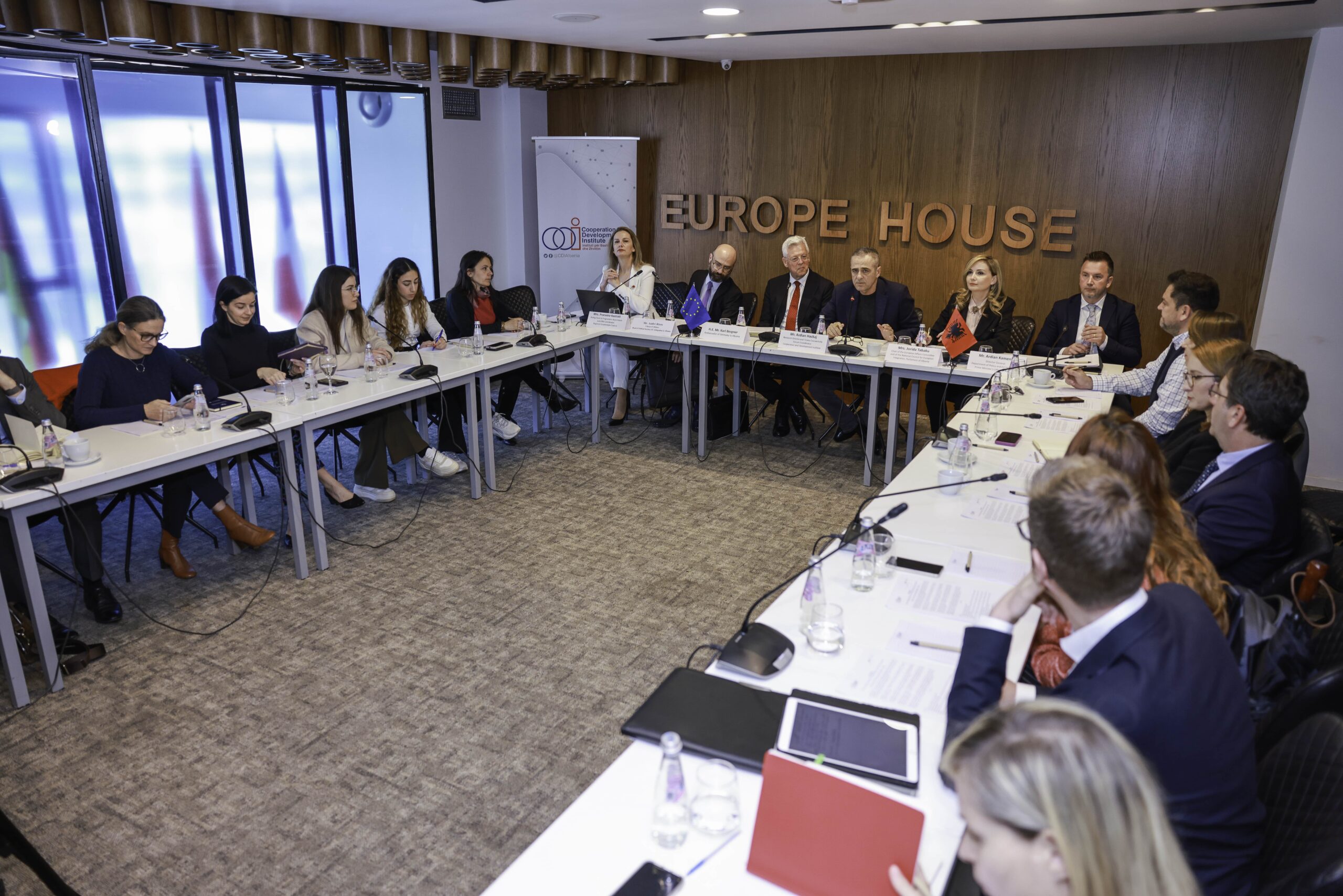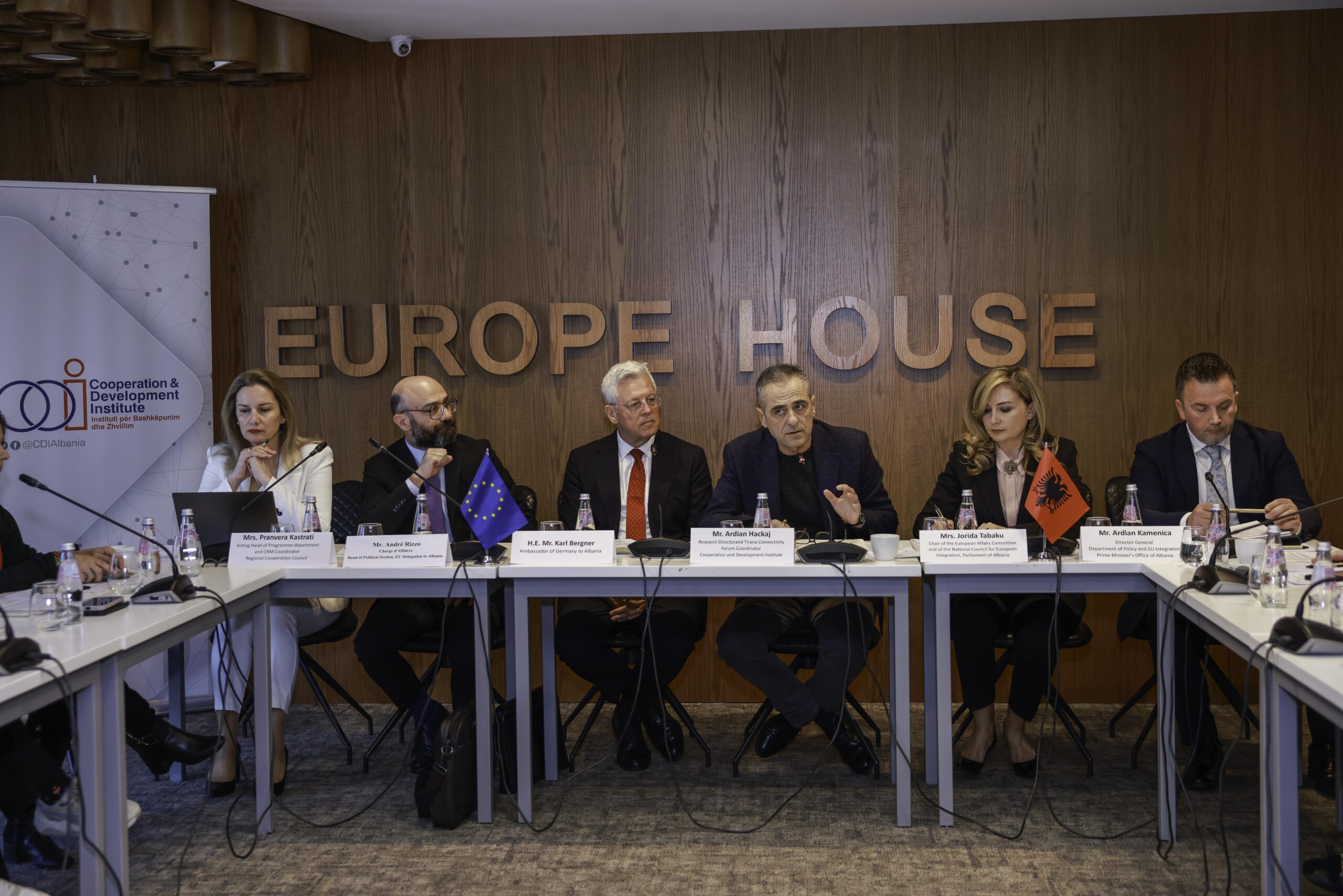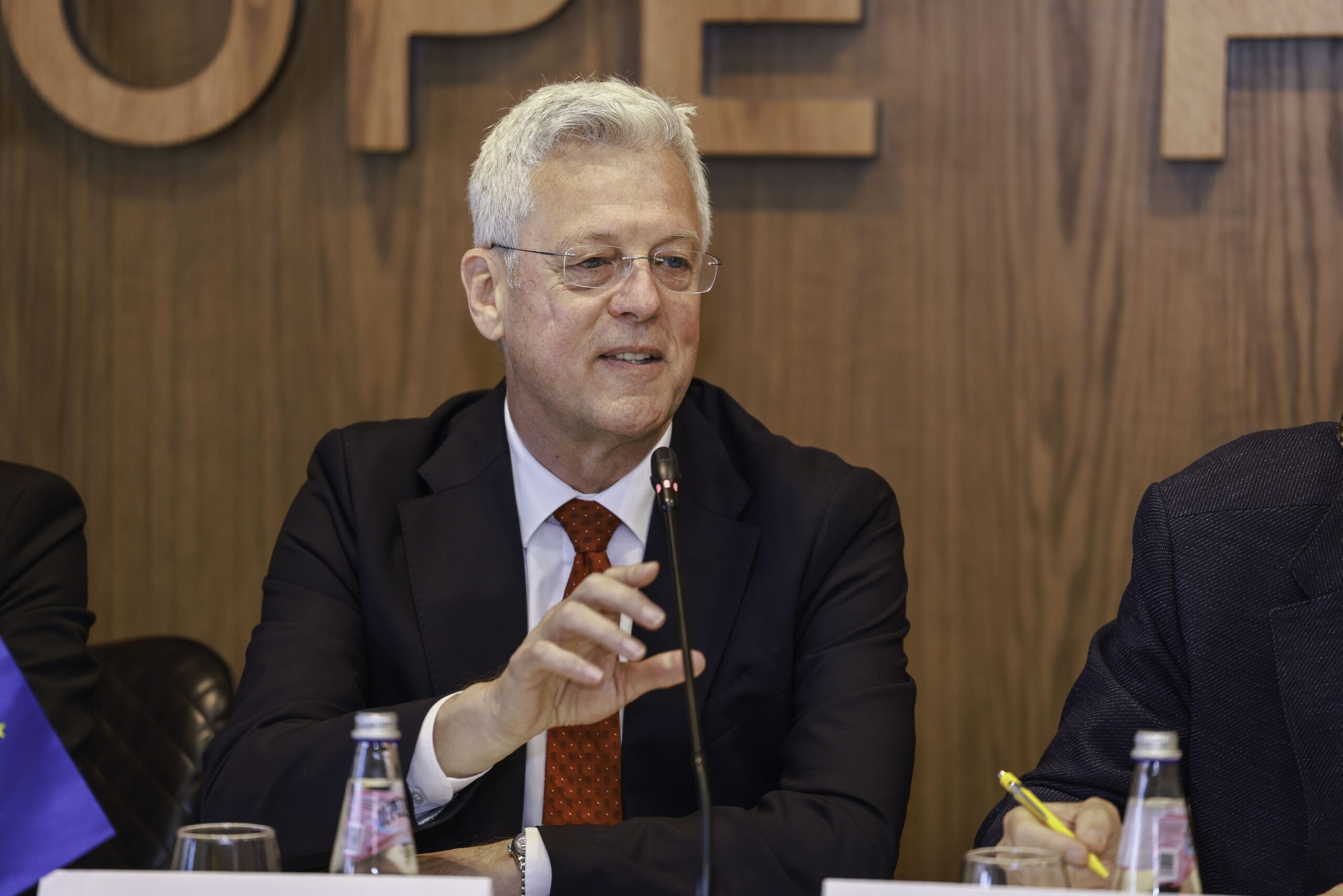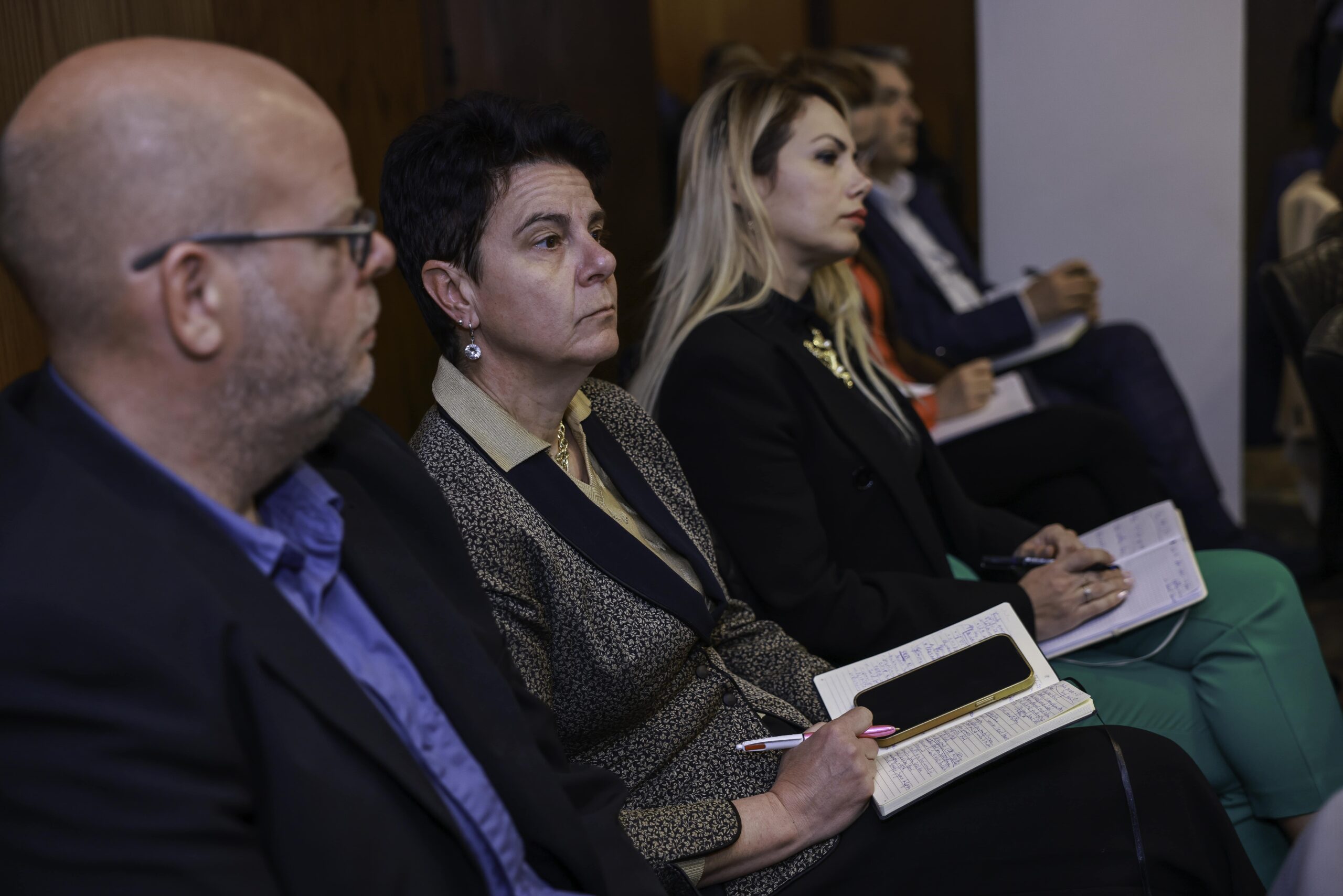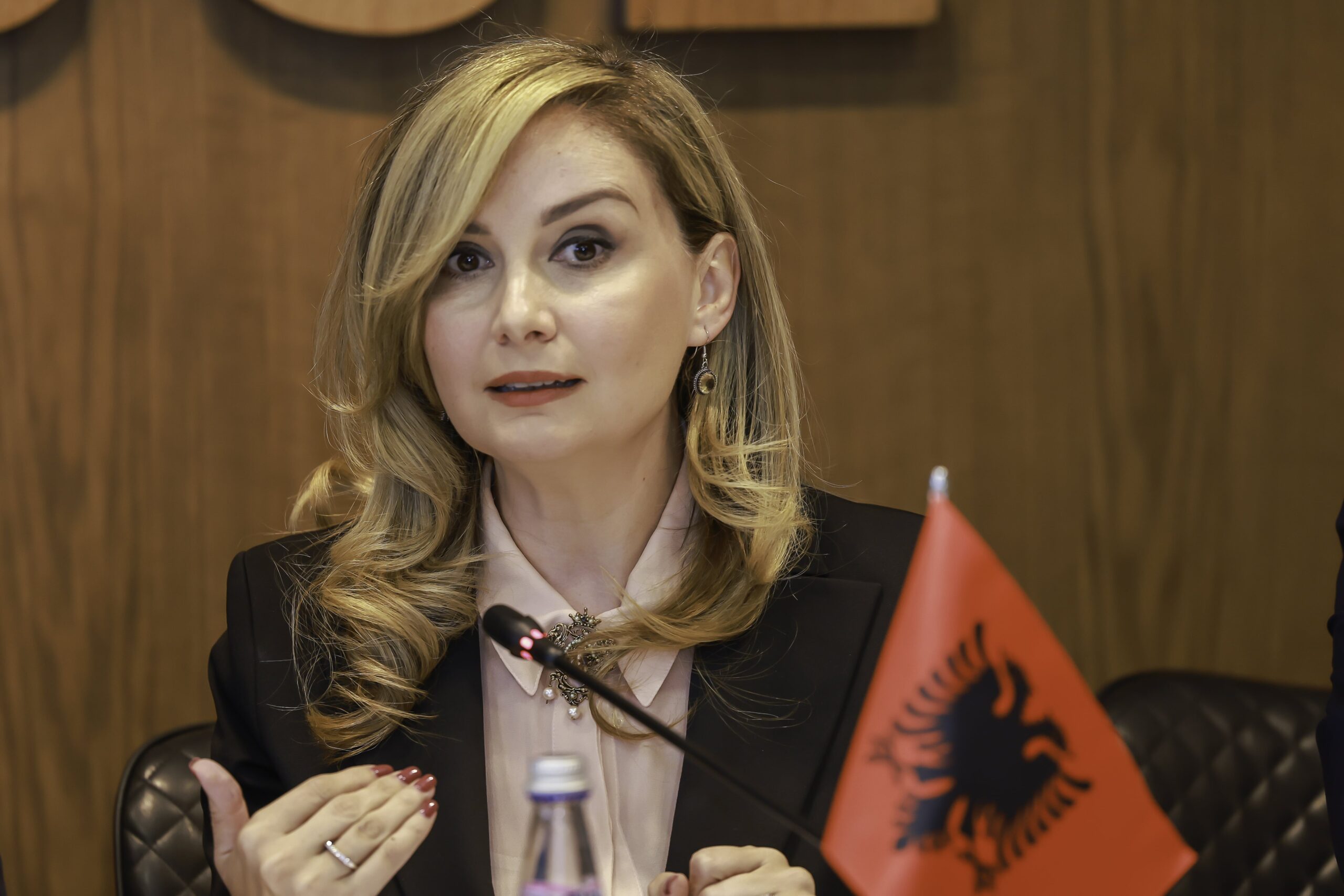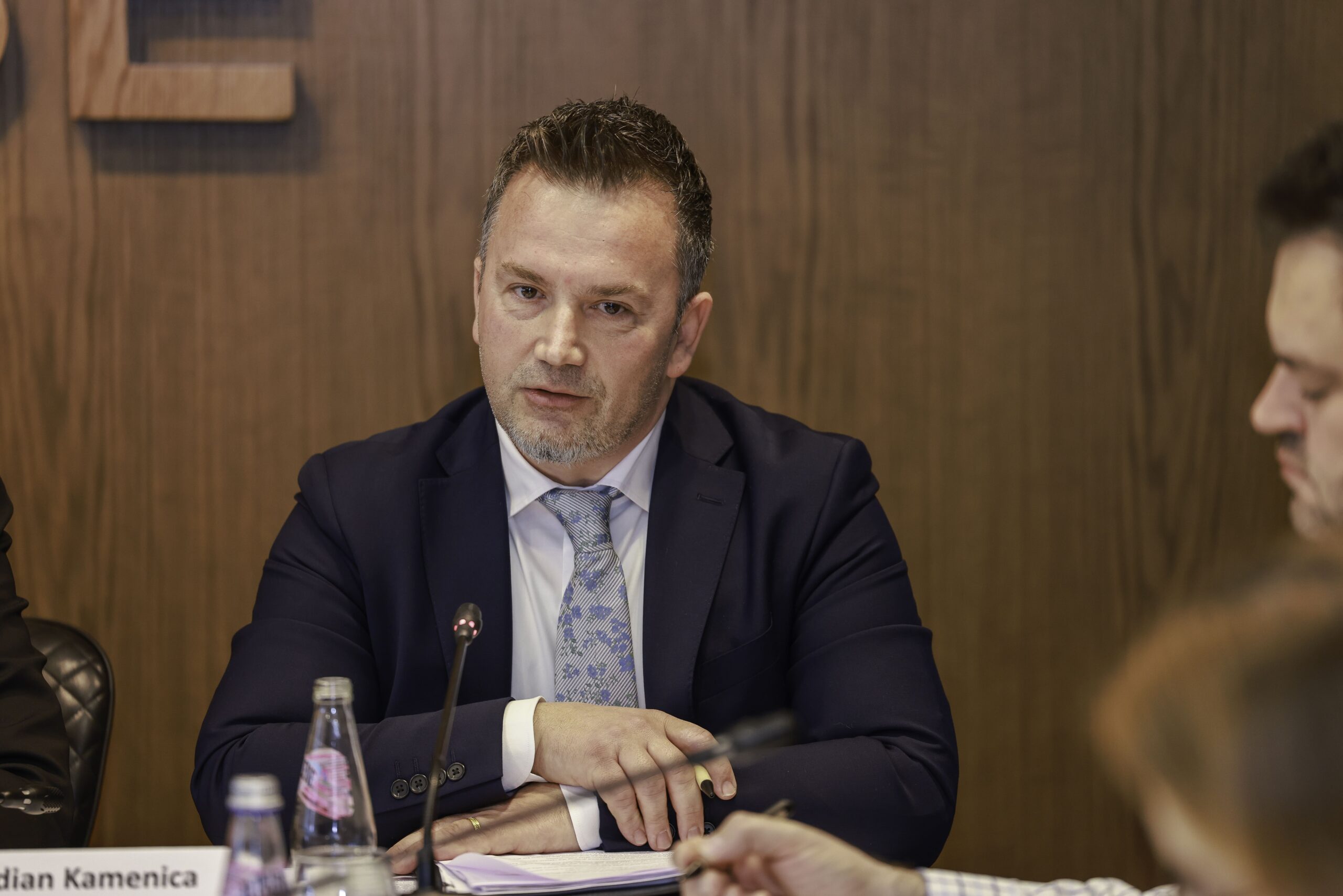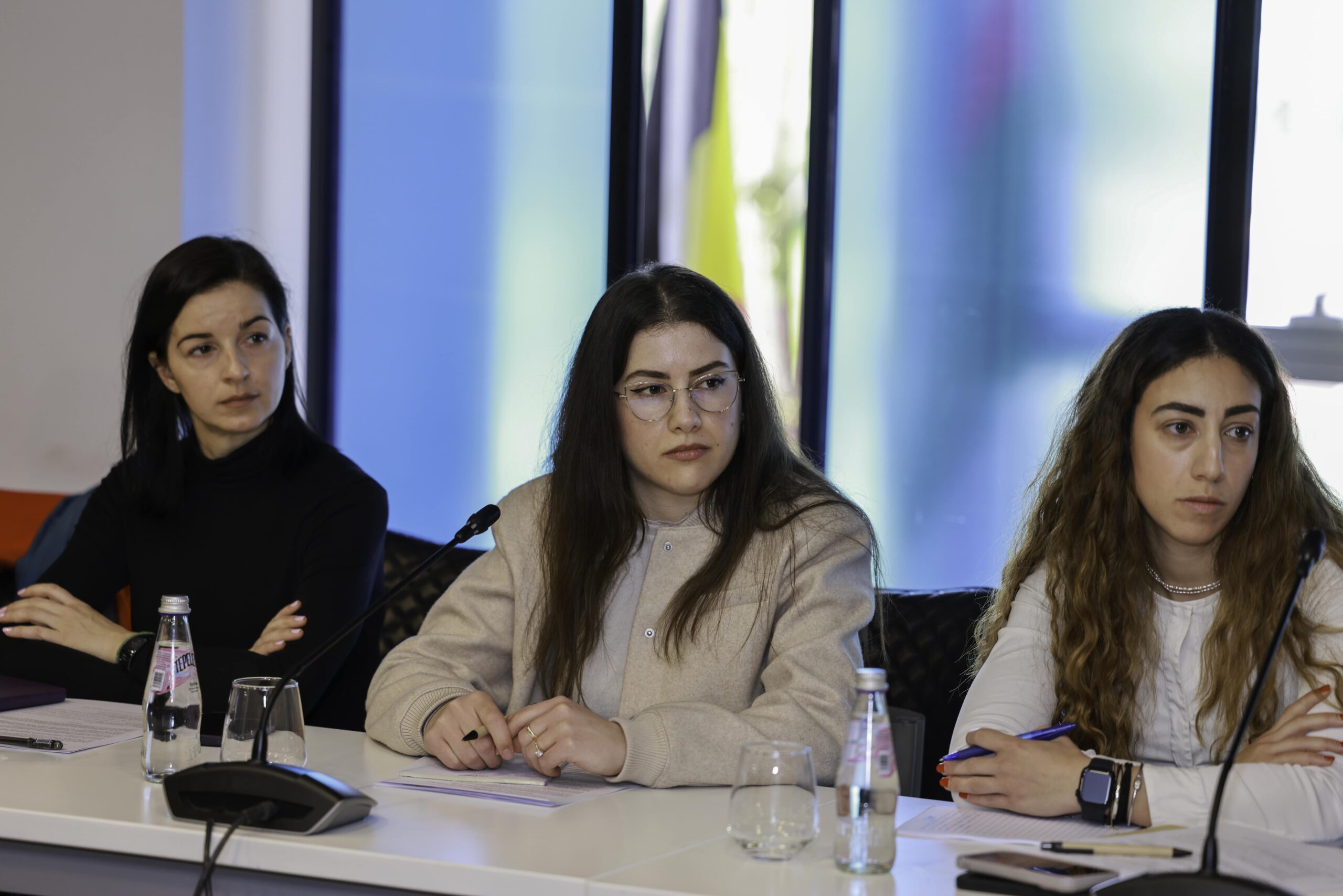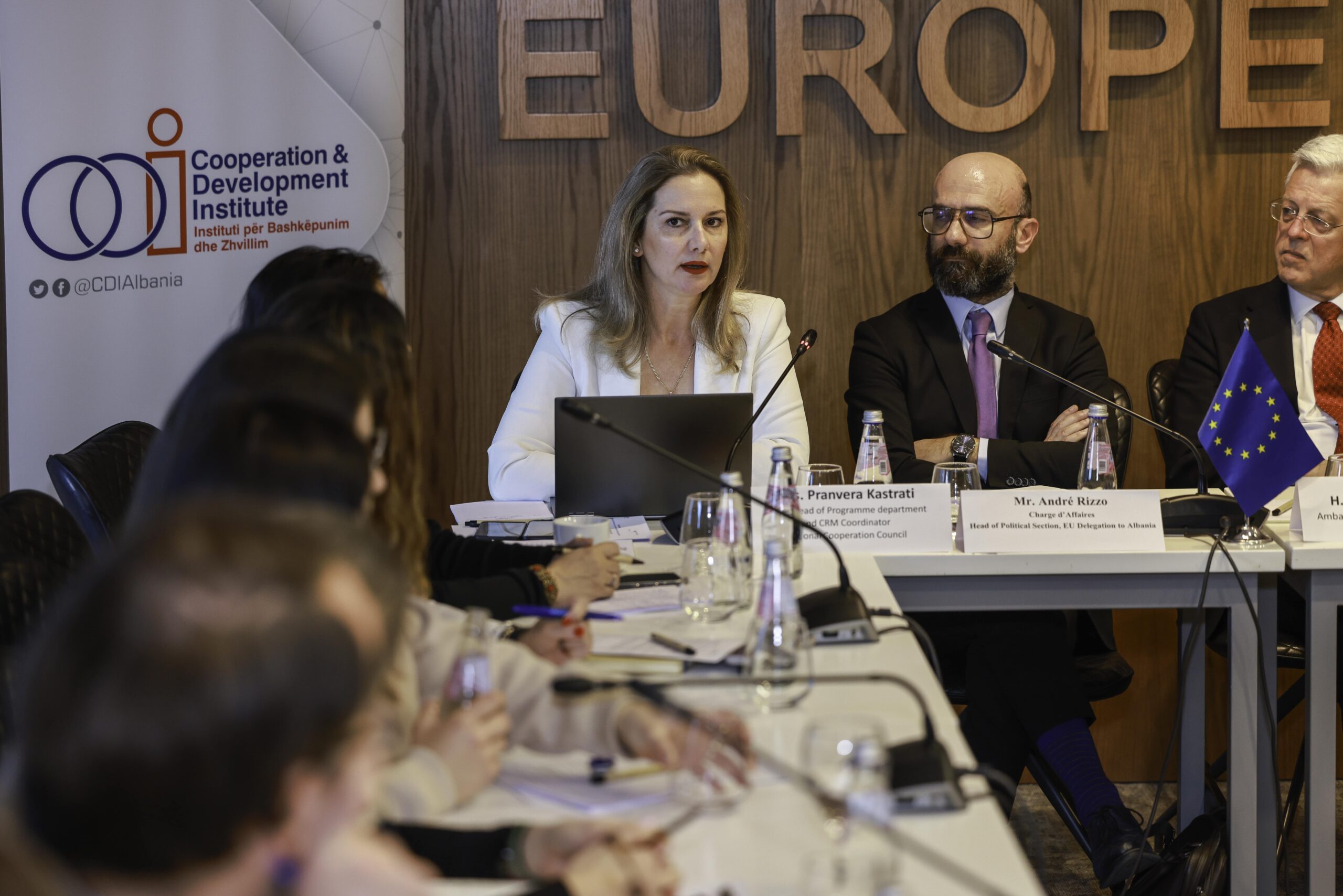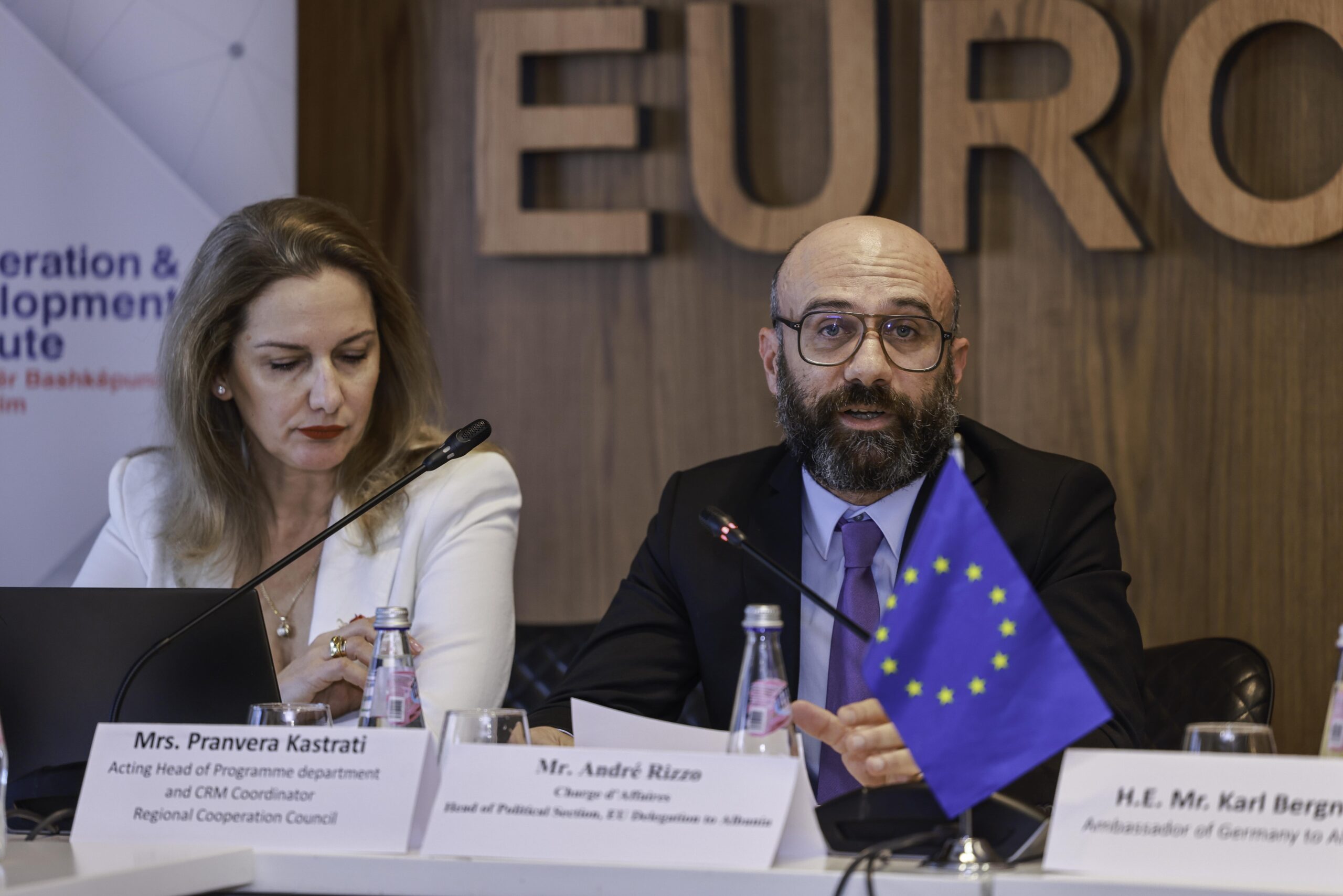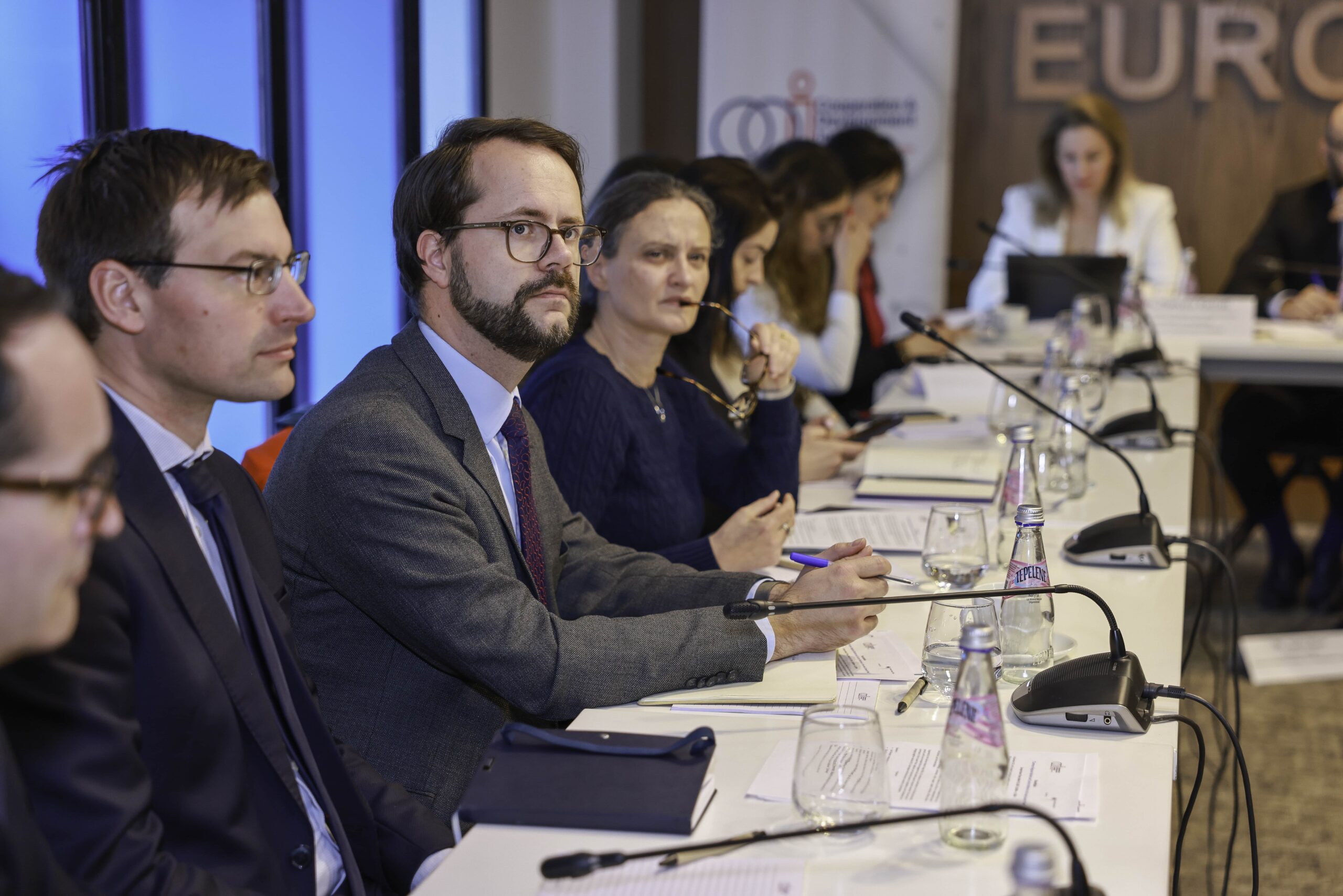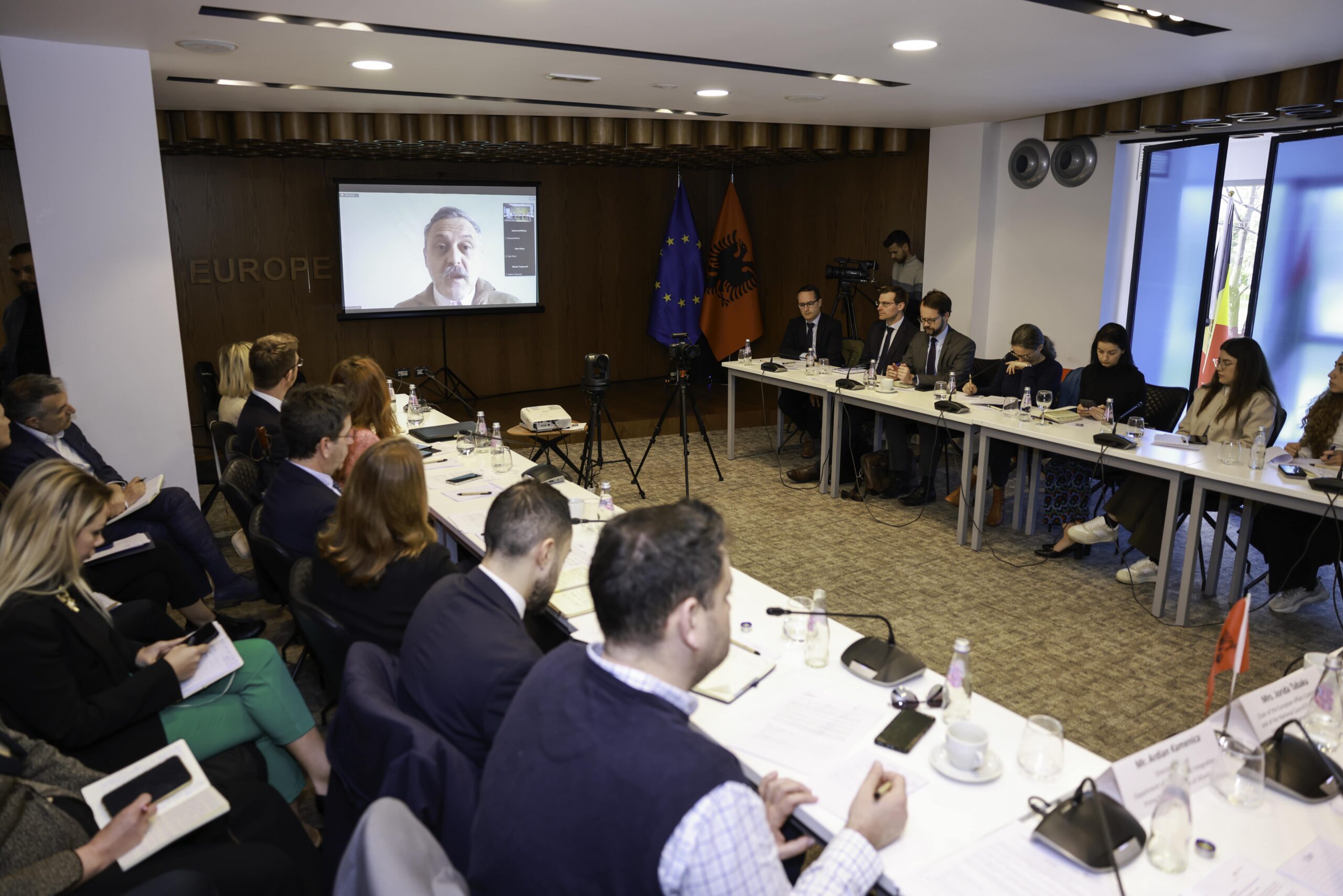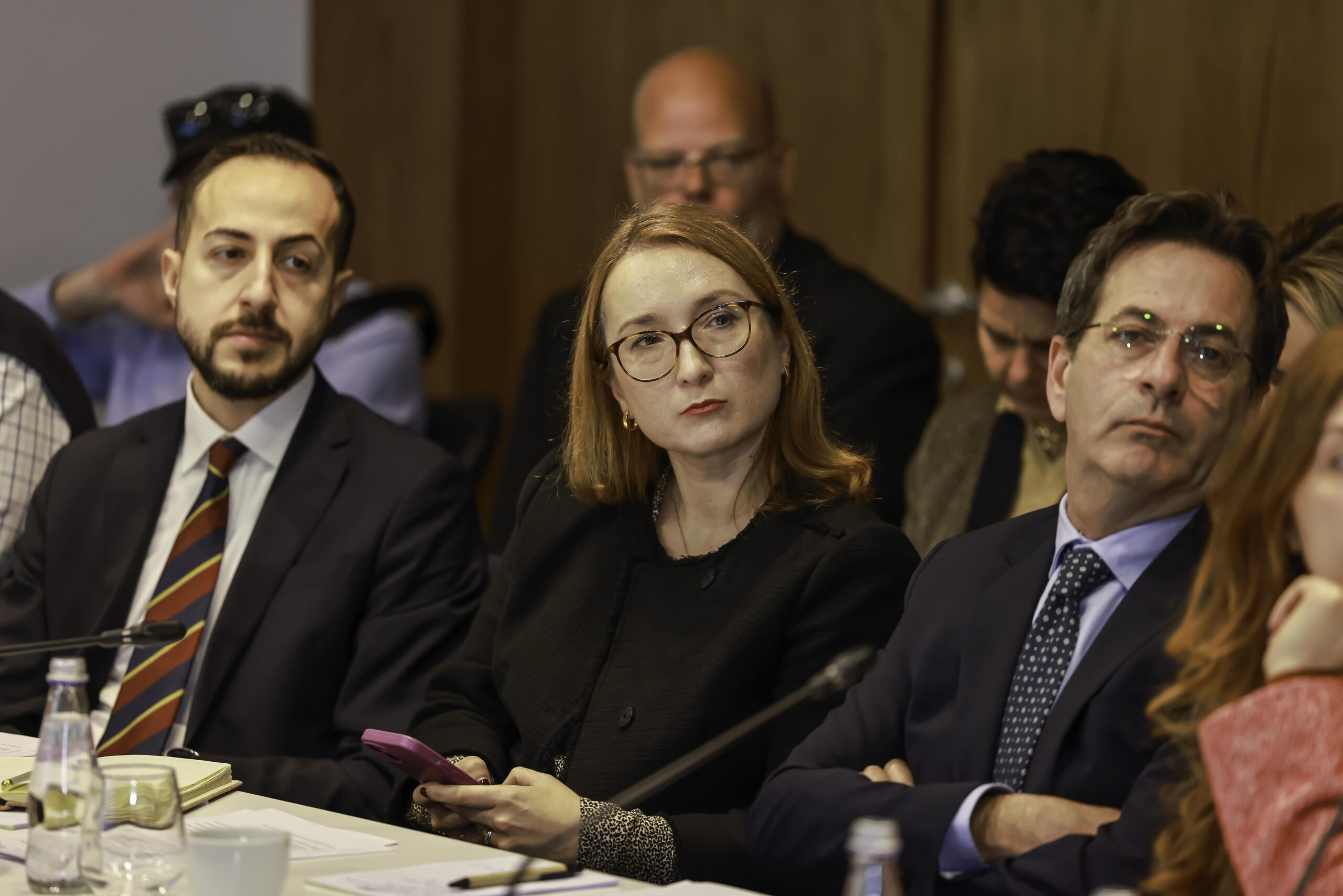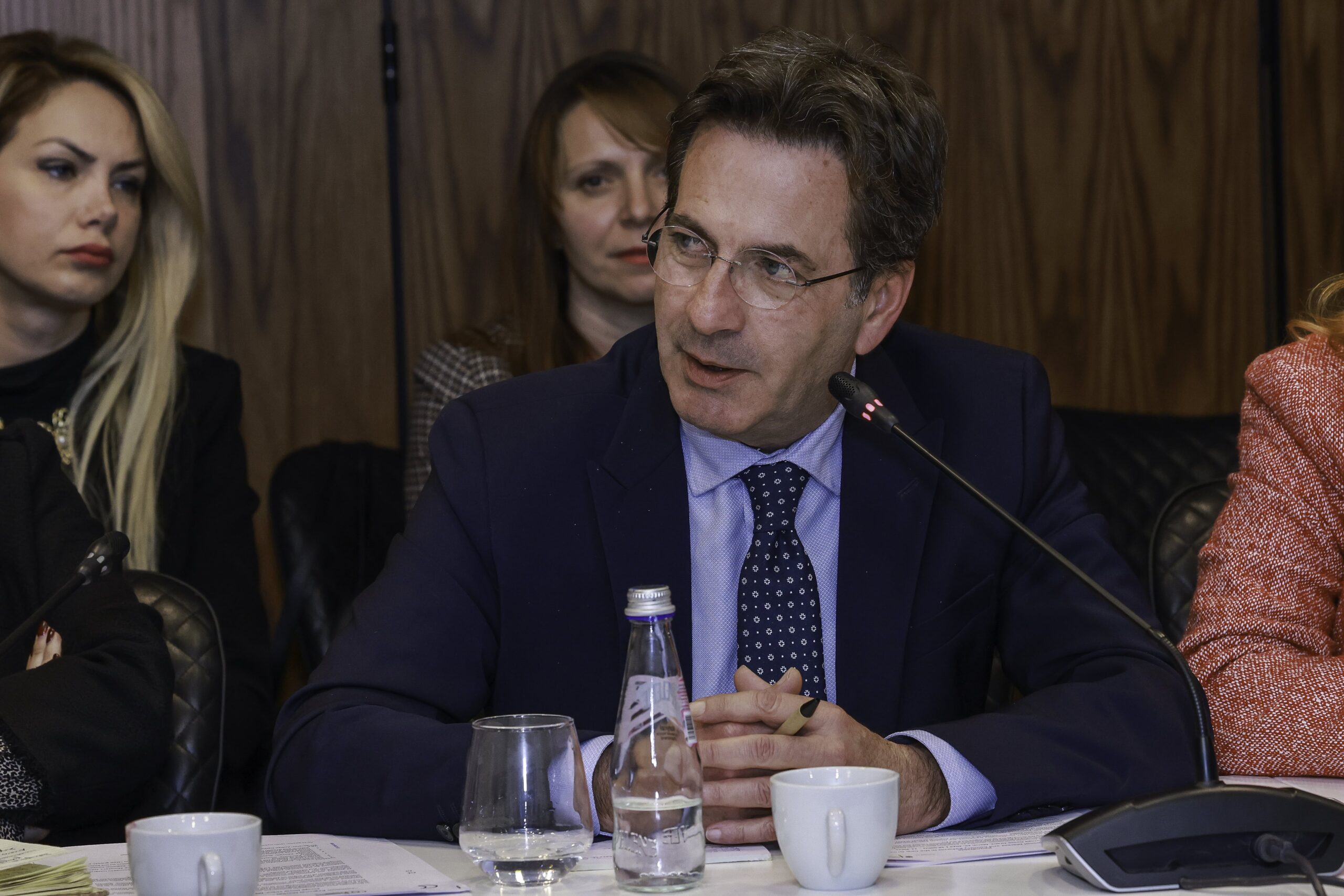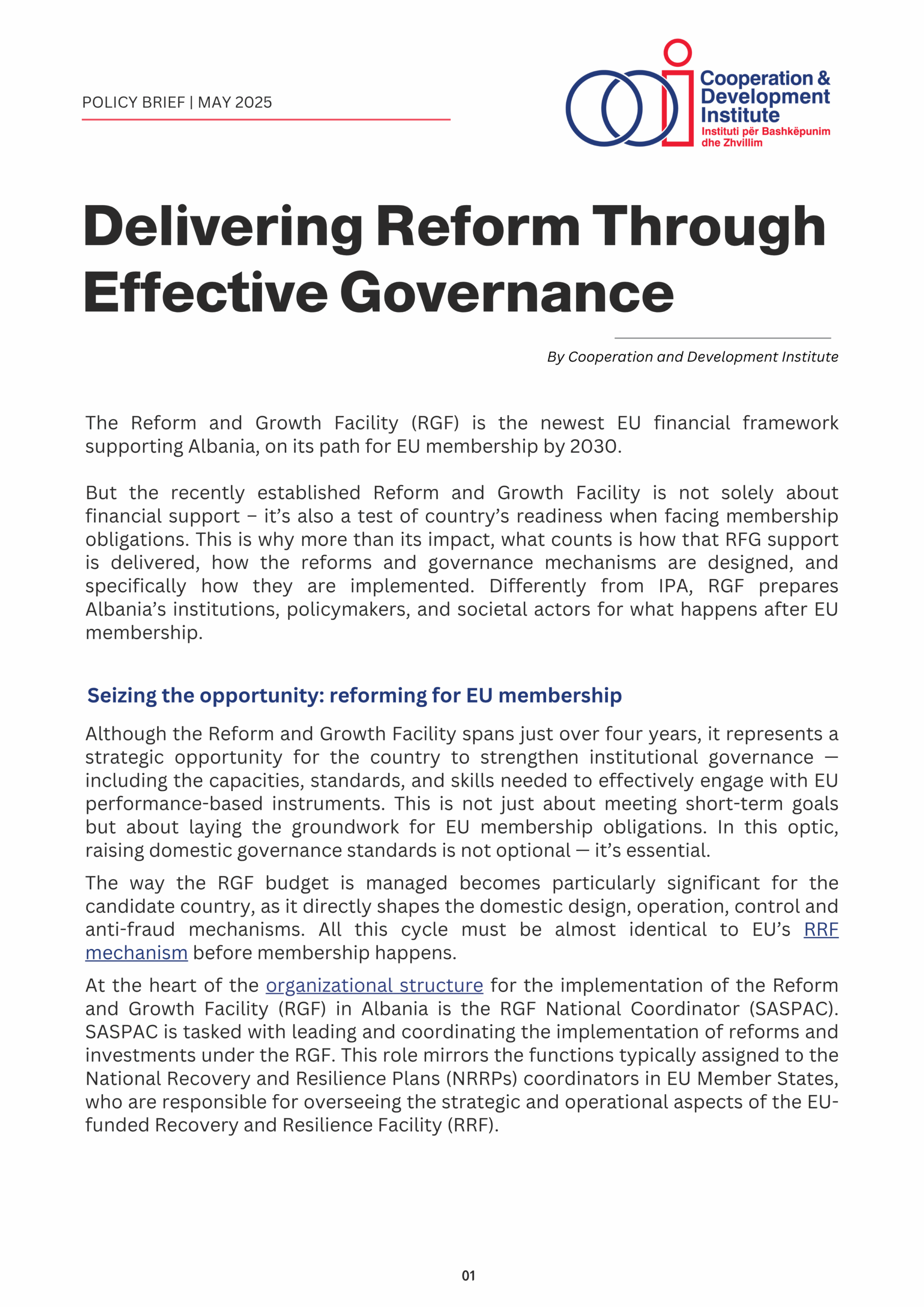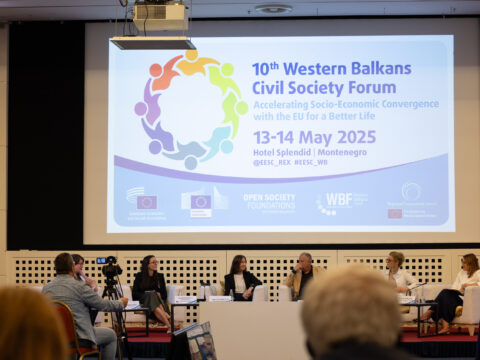25 March 2024
The Albanian Government is entering the final stages of compiling the list of reforms to be supported by the Growth Plan Facility – the new 6 Billion Euro initiative presented by the European Commission in November 2023. In this frame, EU, regional and national stakeholders attended the roundtable “Common Regional Market and Country Reforms in the new Growth Plan”, organized by the Cooperation and Development Institute (CDI) in the framework of its Berlin Process Spring series of events and supported by the German Federal Foreign Office.
The progress in regional cooperation, in the implementation of Common Regional Market and on the adoption of the acquis on EU Single Market are amongst Growth Plan’s key components. German Ambassador to Albania, H.E. Mr. Karl Bergner stated: “The German government fully supports the objectives of the [Growth] Plan, in particular to bring Western Balkan countries closer to the EU internal market and also closer to the accession. We see Berlin Process and Growth Plan as complimentary to each-other and a good coordination between the Commission, the Regional Cooperation Council and the Berlin Process is key to its success.”
The Growth Plan is under Trialogue procedure and a decision is expected within April 2024 stated André Rizzo, Chargé d’Affaires of the EU Delegation to Albania. “It is good news that there is already a significant Growth Plan ownership in the region. – stated Mr. Rizzo. – The European Commission assesses that the Growth Plan is capable of contributing to having a transformative effect on the economies of the region, provided that the necessary reforms are fully implemented according to the Plan.”
The Director General of Policy and EU Integration Department at the Prime Minister Office, Mr. Adrian Kamenica announced that the list of Reforms to be submitted to the Commission is ready, that information roundtables with social partners are planned to be organized from next week and that the Government aims at having the reform agendas officially adopted by the end of May 2024. Further, he added that the Plan will need enhanced human capacities and assistance in the institutions involved.
After commending the contribution of Berlin Process and of Growth Plan on inclusiveness, the Chair of the European Affairs Committee and of the National Council for European Integration, Ms. Jorida Tabaku underlined the need for early involvement of Parliament in the Growth Plan. She stated: “Early participation of the Parliament is crucial to advance national debates and reform and legislative agendas. Our EU integration parliamentary mechanisms are open to societal actors that contribute to this process.”
Mrs. Pranvera Kastrati, from the Regional Cooperation Council (RCC), highlighted the importance for WBs economies to align with the respective EU acquis and with the standards of the best practices. “Growth Plan provides support in closing the convergence gap between EU and WB, by supporting the alignment of the standards and practices with the EU” – she added.
Mr. Ionut Sibian, Rapporteur on the Growth Plan related opinion from the European Economic and Social Committee (EESC), brought in the role of Country Monitoring Committees as based on the Recovery and Resilience Plan mechanism, and the contribution of social partners. EESC Opinion stresses the need to align Growth plan’s Facility mechanism with EU Cohesion principles and governance.
Ms. Liucija Andriekené, Reporting Member of the European Court of Auditors, brought into focus the need for impact assessment of both IPA III and for the upcoming Growth Plan. Main recommendations included the need for the Commission to be able to review the list of the reforms; the need to secure the sustainability of reforms, more precision required for the definition of “satisfactory fulfillment” criteria, etc.
Supported by the German Federal Foreign Office, CDI continues its contribution to an inclusive policy-making process, and to an increased citizen engagement and societal support to regional cooperation. In this frame, CDI is implementing the “Channeling SEE6 Civil Society contribution to the Common Regional Market” project. The current event is part of Berlin Process Spring event series. More information on the project can be found here.



